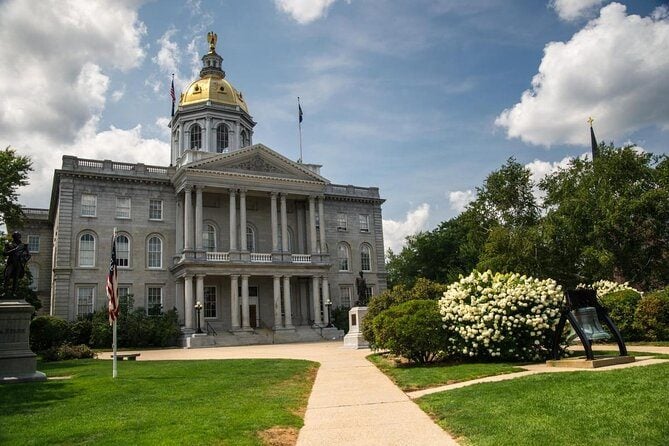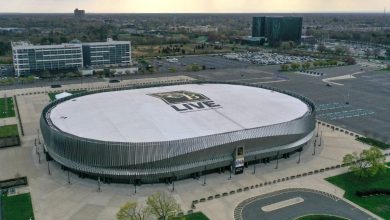New Hampshire Payments Benefiting Casinos and Charities Have Deadline Nearing

The clock is ticking down on a flurry of payments within the New Hampshire Home and Senate which can be related, however might carry important modifications to on line casino house owners, charities, and playing tournaments.
The New Hampshire State Home in Harmony. Legislators within the state capitol are contemplating new laws that will influence how casinos and charitable organizations function. (Picture: Viator)
The primary thrust of the laws, which have to be permitted by April 11, accommodates modifications for on line casino house owners and the charities that rely on the gaming income from these casinos.
Present New Hampshire state legislation requires casinos to associate with charities to function. House Bill 1203 prohibits casinos from charging charities hire to host recreation nights. Due to this fact, charities would now not have to surrender a few of their winnings in hire funds to the casinos with whom they associate. Some charities pay as a lot as $750 an evening, which is typically half of their winnings.
Most on line casino house owners say they gained’t oppose the measure, as a result of New Hampshire elevated the utmost guess restrict on desk video games from $10 to $50, which elevated revenues sufficient to function with out hire funds.
In the meantime, below Senate Bill 472, municipalities with casinos might be part of charities in elevating cash via charitable gaming. The proposal would enable municipalities to lift funds on as much as 10 nights per 12 months at every on line casino it hosts. Nashua, which is residence to 3 casinos, would rise up to 30 nights a 12 months of charitable gaming to assist increase cash.
There may be tremendous print, nevertheless. Municipalities can’t displace charities to run their very own fundraisers, however as an alternative, can solely obtain recreation nights if a charity doesn’t need to use them.
The curiosity degree within the SB472 is underscored by the lengthy ready checklist casinos at present maintain of charities that need to take part when any spots open.
A 3rd invoice into account, SB 432, would broaden the variety of charities that would profit from charitable gaming income. SB 432 would additionally give the state 1.5% of sure horse races positioned by way of an app.
Senator Tim Lang (R-District 2), who sponsors the measure, mentioned the tax might herald $300K yearly.
Historic Horse Racing Moratorium Expiration
On July 1, 2024, an current moratorium on new venues providing historic horse racing expires. Historic horse racing seems to be and performs like slot machines and usually generates way more income than desk video games. Two payments into account would proceed the state’s moratorium, which was put in place to guage the influence of HHR when the state legalized it in 2021.
Fourteen casinos within the state are eligible to carry HHR licenses, 5 of which have functions below evaluation. There are solely 9 casinos in the entire different New England states.
Venue house owners assist a restrict on competitors.
“I do know there are individuals who similar to (with) the Oklahoma land rush are sitting on the border simply ready for the bell to go off, and also you’ll see these items pop up nearly in every single place,” mentioned Rick Newman, a lobbyist for the NH Charitable Gaming Operators Affiliation.
Lawmakers have additionally expressed concern about having too many casinos with HHR video games and the potential to siphon off income from the prevailing websites.
Greater Match Winnings?
House Bill 1549 would cap withholdings on what gamers pay to enter a gaming match. That would imply these with greater entry charges might imply larger match winnings. Many casinos host nightly gaming tournaments.
Casinos should withhold 20% of what gamers pay to enter a match. That price lowers the prize pool and it’s not so noticeable for gamers who pay $100 to enter, as a result of it reduces the pool by $20 a participant.
For a match with a $2,500 buy-in, the prize pool would drop $500 per participant, which might cut back the motivation to play. HB 1549 would cap the price at 20% or $250 per participant, whichever is decrease.





